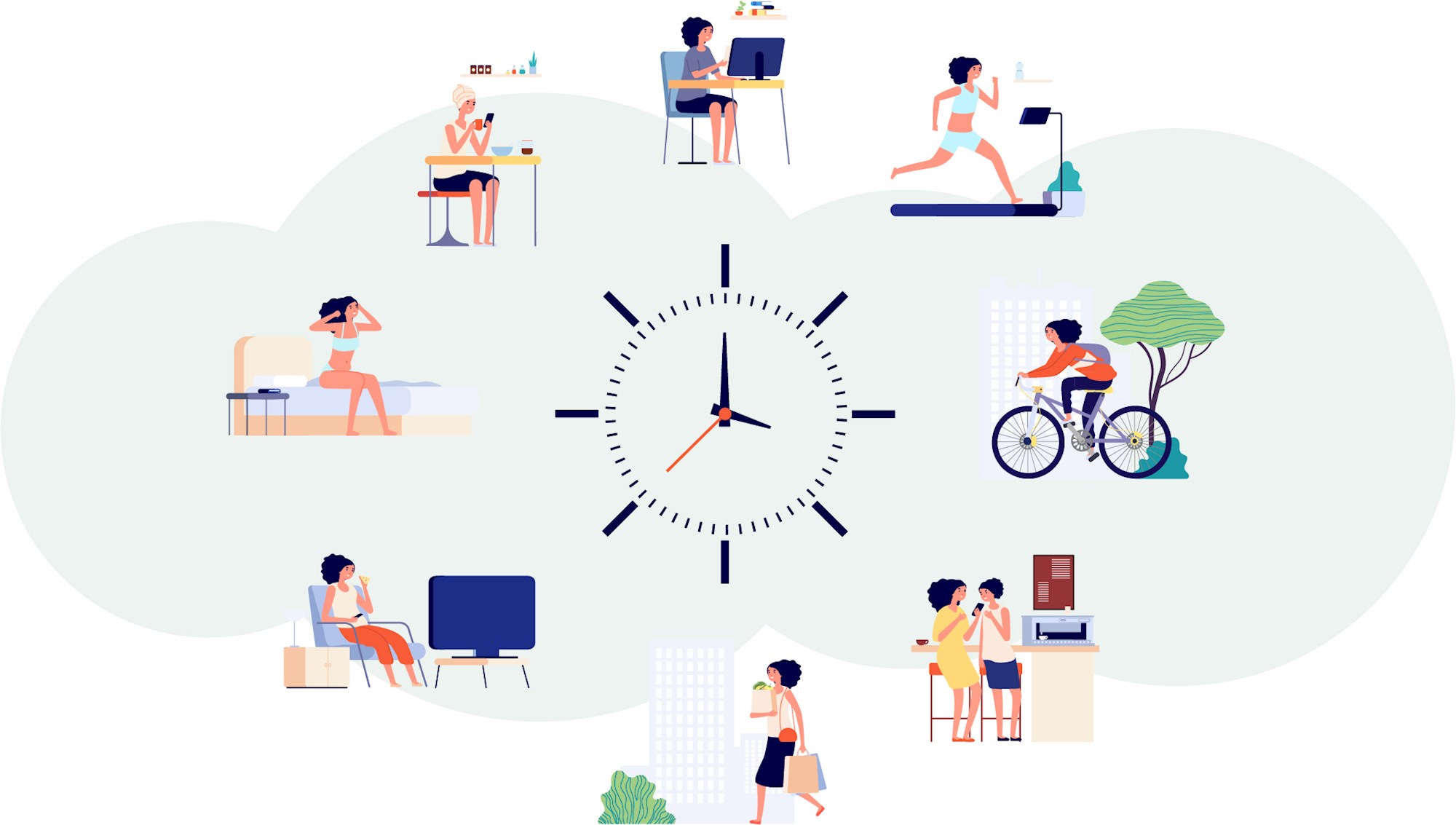
15 Apps and Resources to Help You Stick to a Routine
9/30/2025
Whether you're 16 or 26, dealing with ADHD, anxiety, or just trying to get your life together, routines can be a game-changer. But let's be honest – starting and sticking to routines is hard. That's why we're going to talk about why they work and give you real tools to make them stick.
Your Brain on Routines: The Science Part
Here's what's happening upstairs: every decision you make uses mental energy. From "what should I wear?" to "when should I leave for work?" your brain is constantly working. Routines turn these decisions into automatic habits, which frees up brainpower for more important stuff.
Research from MIT shows that when something becomes a routine, different parts of your brain take over. Instead of actively thinking through each step, your brain can run on autopilot for the routine parts of your day.
This is especially helpful if you have ADHD, anxiety, or depression. When your mental energy is already limited, routines can help you function better even on tough days.
Morning Routines: Start Your Day Right
Morning routines set the tone for everything else. You don't need to wake up at 5 AM and meditate for an hour (unless that's your thing). Even a simple 15-minute routine can make a huge difference.
Try the Miracle Morning approach, which involves six activities (silence, affirmations, visualization, exercise, reading, and scribing) to start your day. But make it your own. Maybe it's just making your bed, drinking a glass of water, and checking your calendar. Or listening to the same playlist while you get ready.
Apps like Streaks or Productive can help you track morning habits without being overwhelming. Forest is great if you want to avoid your phone first thing in the morning.
Evening Routines: Wind Down Like a Pro
Evening routines help your brain shift from "day mode" to "sleep mode." This is huge for people with anxiety or racing thoughts at bedtime.
Start small: pick out tomorrow's clothes, do a quick tidy-up, or write down three things that went well that day. The Headspace app has guided bedtime meditations that can become part of your routine.
Sleep Foundation has tons of research-backed tips for building better sleep routines. Even something as simple as reading for 10 minutes instead of scrolling your phone can improve your sleep quality.
Work and School Routines: Getting Stuff Done
Having routines for work or school helps you stay focused and reduces procrastination. This might lead to always doing homework in the same spot or starting work by checking your calendar and making a to-do list.
Todoist is great for creating recurring tasks and building routine reminders into your day. RescueTime can show you where your time actually goes, which helps you build more realistic routines.
If you have ADHD, try the Pomodoro Technique – work for 25 minutes, then take a 5-minute break. Making this your standard work routine can help with focus and prevent burnout.
Building Routines That Actually Stick
Here's where most people mess up: they try to change everything at once. Start with ONE tiny routine and do it for at least two weeks before adding anything else.
The Atomic Habits method suggests making new habits so small they feel almost silly. Want to exercise more? Start with putting on workout clothes. Want to read more? Read one page. Once the tiny version becomes automatic, you can build on it.
Use "habit stacking" – attach your new routine to something you already do. Like "after I brush my teeth, I'll write in my journal for two minutes."
Digital Tools That Actually Help
Habitica turns your routines into a video game, which is perfect if you're motivated by rewards and achievements. Way of Life uses simple color coding to track whether you did your routine each day.
For planning, Notion has amazing routine templates you can customize. Google Calendar is free and great for scheduling recurring routine reminders.
IFTTT can automate parts of your routine, like automatically turning on your bedroom lights at bedtime or playing your morning playlist when your alarm goes off.
When Routines Feel Overwhelming
Some days, routines feel impossible. That's normal and doesn't mean you're failing. On tough days, pick just one part of your routine – maybe just making your bed or drinking enough water.
The National Alliance on Mental Illness has resources about maintaining routines during difficult mental health periods. Think about those ever-lasting cloudy days that we seem to get all winter in Northeast Ohio.
Your Routine, Your Rules
The best routine is one you'll actually do. Don't try to copy someone else's perfect morning or evening routine. Build something that fits your life, your schedule, and your personality.
Start small, be consistent, and give yourself permission to adjust as you go. Your future self will thank you for creating these systems now.